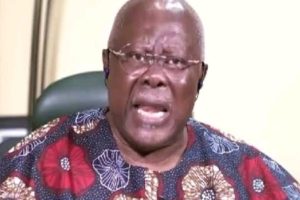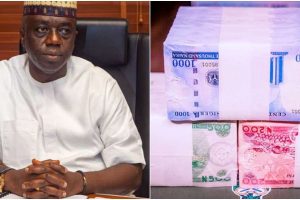
President Bola Tinubu declared on Monday that corruption, in all its forms, is detrimental to the people of Nigeria, and emphasized the need for a comprehensive approach to combat it.
Speaking during his first presidential media chat, Tinubu addressed questions about his administration’s plans to tackle corruption, asserting that merely identifying corrupt practices was not enough.
Instead, he stressed the importance of addressing the root causes that fuel corruption within society. He explained that the lack of basic social amenities, inadequate access to funds, and challenges related to education for children are significant factors that drive people toward corrupt practices.
“Corruption in all its forms is bad for the people,” Tinubu remarked. “But before we focus on fighting corruption, we must first understand its causes. Why do people engage in corrupt practices? The lack of social amenities, the absence of financial security, the inability to afford quality education for their children—these are some of the fundamental issues.”
To address these underlying causes, Tinubu pointed to his administration’s decision to raise the minimum wage of Nigerian workers from ₦35,000 to ₦70,000, which he sees as a crucial step in the broader fight against corruption. “Increasing the minimum wage to ₦70,000 is, to me, an anti-corruption measure,” the president said. “When people are paid a fair and livable wage, they are less likely to be tempted by corrupt practices.”
The president further explained that beyond raising wages, his administration has been working to improve transparency and resource distribution. He highlighted that his government has ensured greater financial allocation to state and local governments, providing them with more funds to meet the needs of their citizens. Transparency, he noted, is a key tool in reducing corruption. “I am always open about how much the government is earning monthly. I believe transparency is crucial in fighting corruption,” he added.
Tinubu acknowledged that while it may be impossible to fully eliminate corruption, significant progress can be made by addressing the root causes and ensuring the people’s basic needs are met. “It is difficult to completely eliminate corruption, but we can reduce it to the barest minimum by improving the livelihoods of the people and ensuring that they have access to what they need,” he said.
In sum, President Tinubu’s remarks reflect a multi-faceted approach to combating corruption—focused not only on punitive measures but also on addressing the economic and social factors that contribute to it.





